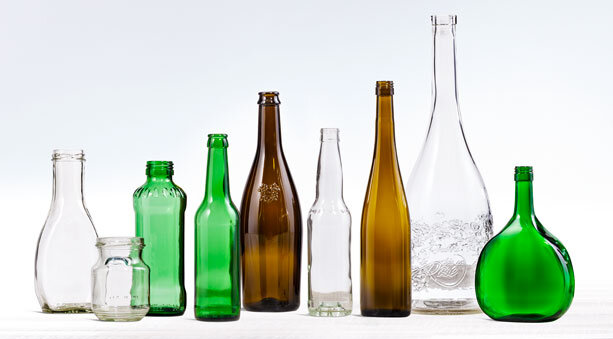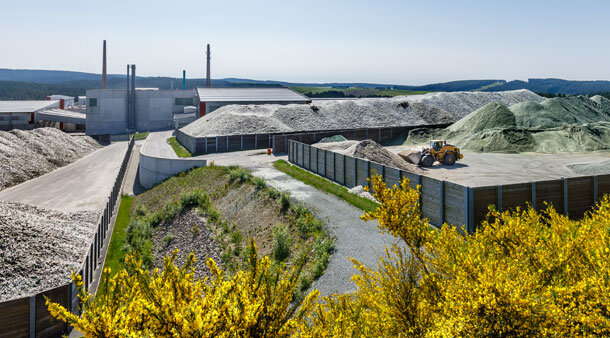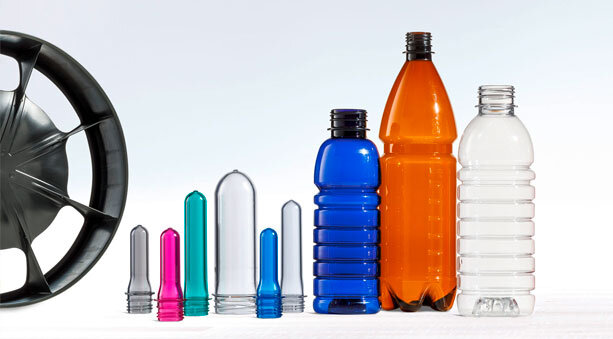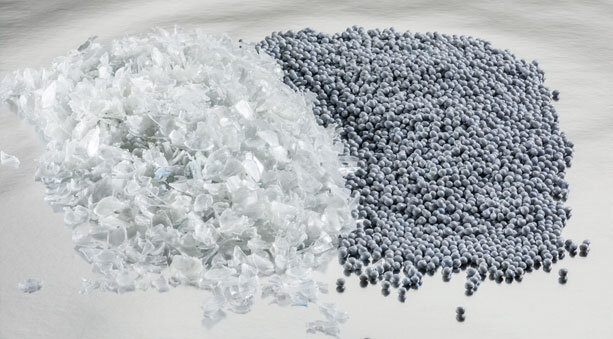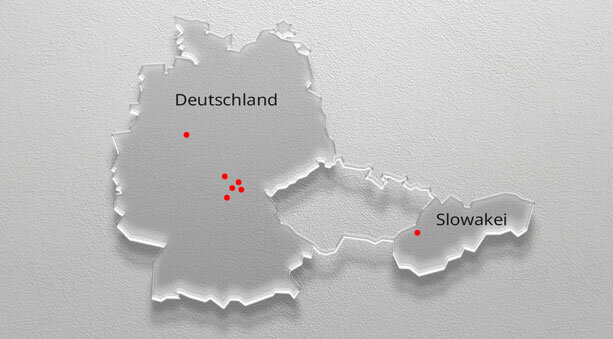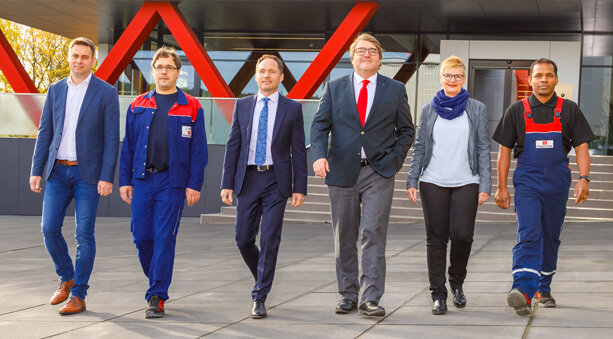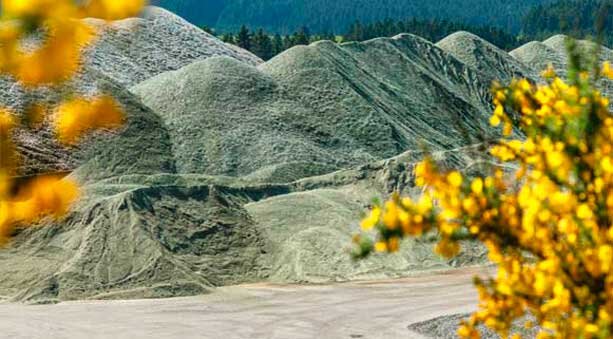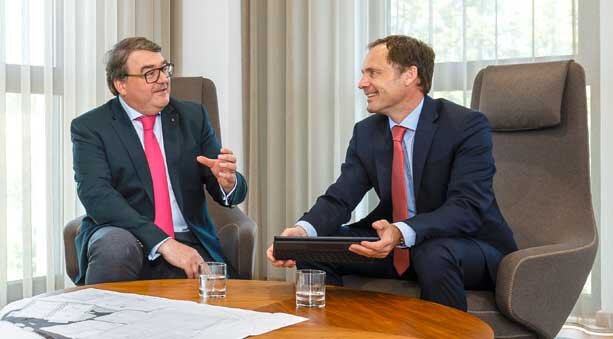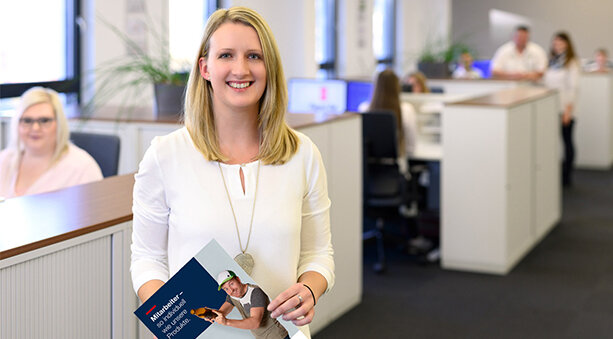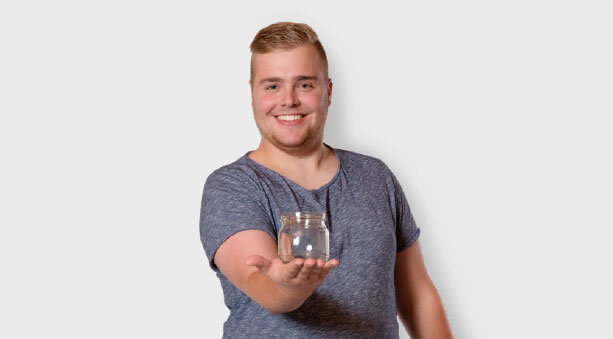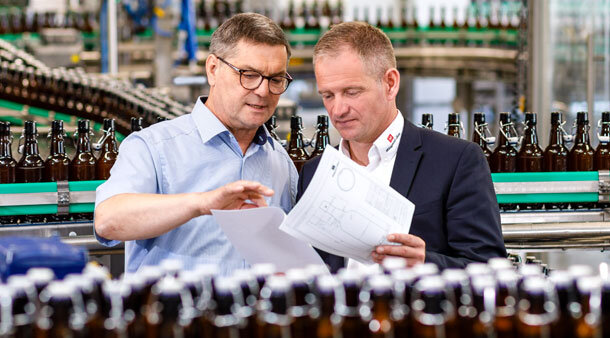Technologies
Innovation requires the latest technologies

Thanks to our general sense of responsibility, we have always been prepared to invest above average in climate and environmental protection measures.
- Waste glass recycling: High percentage of cullet in the furnaces, thanks to the latest in-house waste glass processing systems and access to waste glass collection quantities
- Batch pre-heating: Reducing energy consumption and CO2 emissions by using residual energy from the hot waste gases to preheat the cullet
- Lightweighting: Production of lighter bottles thus creating less CO2 emissions as well as savings on freight
- Waste gas treatment: Greatest possible reduction in emissions of pollutants thanks to our continuous investment in state-of-the-art waste gas treatment systems, such as ammonia filters

By using modern monitoring and control systems, we are on the way to achieving a closed loop system.
- Modern furnace control: Fully automated glass production formulas are the basis for a stable melting process
- Controlled glass processing: Modern measuring and control systems (e.g. PPC, TCS, GIA, HotMASS) are helping us to monitor and take action to control parameters such as temperature (TCS) and gob weight (PPC). We use infrared technology to carry out an initial quality check immediately after production (XPAR).
- Total quality control: We are able to guarantee 100 % quality control thanks to our modern, coordinated quality inspection systems. We use the data results for our CIP.
- Networked ERP system: By collecting all the information in our ERP system, we are able to combine the commercial and technical aspects.

Because we think outside the "bottle", we also put a challenge on our partners when searching for solutions. Having found them and being convinced of them, they will be implemented by us consistently.
- LoNOx: The glass melting furnace, developed in the 1980s, was far ahead of its time. It stands out in its production of good quality glass, thanks to its low energy consumption and pollution emissions far below the German "Technical Instructions on Air Quality Control".
- NIS: With this servo-electric production machine, all machine operations can be fine-tuned and reproduced, thereby ensuring greater stability throughout the glass production process and greater flexibility across the production programme. With shorter set-up times and savings on compressed air, we are also reducing the workload of our employees.
- Lubrication robot: We ensure greater safety and reduce the workload of our employees, and also ensure continuous mould lubrication, by using lubrication robots.
- Packaging robots: The use of robotics in our packaging area enables us to produce complex packaging solutions.
- Finishing: We are extending our value chain by using fully automated systems to equip the bottles with swing stoppers and modern coating systems.
What we offer
Everything from a single source
